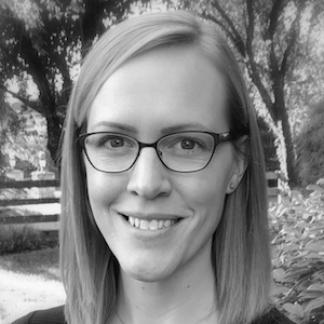Adrianna (Anna) Jenkins

Cognitive Neuroscience; Social Cognition; Decision Processes
Specific Research Areas
Social cognition and its relationship to other cognitive systems; contributions of the prefrontal cortex to social and non-social decision-making; psychological and neural mechanisms of uncertainty reduction in social and future-oriented thought; contextual flexibility in human behavior.
PSYC 0001: Introduction to Experimental Psychology
PSYC 3232: Seminar in Cognitive Neuroscience: The Social Brain Seminar
BA, Dartmouth College
MA, Harvard University
Ph.D., Harvard University
(For a full list of publications, see the website.)
Plate, R., Ham, H., & Jenkins, A.C. (in press). When uncertainty in social contexts increases exploration and decreases obtained rewards. Journal of Experimental Psychology: General.
Berkay, D. & Jenkins, A.C. (2023). A role for uncertainty in the neural distinction between social and nonsocial thought. Perspectives on Psychological Science. Perspectives on Psychological Science, 18(2), 491-502.
Xia, A., Solomon, S.H., Thompson-Schill, S.L., & Jenkins, A.C. (2023). Constructing complex social categories under uncertainty. Cognition, 234, 105363.
Defendini, A. & Jenkins, A.C. (2023). Dissociating neural sensitivity to target identity and mental state content type during inferences about other minds: an fMRI meta-analysis. Social Neuroscience, 18(2), 103-121.
Kobayashi, K., Kable, J.W., Hsu, M. & Jenkins, A.C. (2022). Neural representations of others’ traits predict social decisions. Proceedings of the National Academy of Sciences, USA, 119(22), e2116944119.
Plate, R. & Jenkins, A.C. (2022). Anticipating greater impact of the COVID-19 pandemic on social life is associated with reduced adherence to disease-mitigating guidelines. Frontiers in Psychology, 12, 756549.
Jenkins, A.C. (2019). Empathy affects tradeoffs between life’s quality and duration. PLoS ONE, 14(10), e0221652.
Jenkins, A.C. (2019). Rethinking cognitive load: A default-mode network perspective. Trends in Cognitive Sciences, 23(7), 531-533.
Jenkins, A.C., Karashchuk, P., Zhu, L., & Hsu, M. (2018). Predicting human behavior toward members of different social groups. Proceedings of the National Academy of Sciences, USA, 115(39), 9596-9701.
Jenkins, A.C., & Hsu, M. (2017). Dissociable contributions of imagination and willpower to the malleability of human patience. Psychological Science, 28(7), 894-906.
Jenkins, A.C., Zhu, L., & Hsu, M. (2016). Cognitive neuroscience of honesty and deception: A signaling framework. Current Opinion in Behavioral Sciences, 11, 130-137.
Jenkins, A. C., Dodell-Feder, D., Saxe, R., & Knobe, J. (2014). The neural bases of directed and spontaneous mental state attributions to group agents. PLoS ONE, 9(8), e105341.
Zhu, L., Jenkins, A.C., Set, E., Scabini, D., Knight, R., Chiu, P., King-Casas, B., & Hsu, M. (2014). Damage to dorsolateral prefrontal cortex affects tradeoffs between honesty and self-interest. Nature Neuroscience, 17(10), 1319-1321.
Jenkins, A.C. & Mitchell, J.P. (2011). Medial prefrontal cortex subserves diverse forms of self-reflection. Social Neuroscience, 6(3), 211-218.
Gray, K., Jenkins, A.C., Heberlein, A.S. & Wegner, D.M. (2011). Distortions of mind perception in psychopathology. Proceedings of the National Academy of Sciences, USA, 108(2), 477-479.
Jenkins, A.C. & Mitchell, J.P. (2010). Mentalizing under uncertainty: Dissociated neural responses to ambiguous and unambiguous mental state inferences. Cerebral Cortex, 20(2), 404-410.
Ames, D.L., Jenkins, A.C., Banaji, M.R., & Mitchell, J.P. (2008). Taking another person’s perspective increases self-referential neural processing. Psychological Science, 19(7), 642-644.
Jenkins, A.C., Macrae, C.N., & Mitchell, J.P. (2008). Repetition suppression of ventromedial prefrontal activity during judgments of self and others. Proceedings of the National Academy of Sciences, USA, 105(11), 4507-4512.
Advisees
Shangzan (Sunny) Liu [Psychology Graduate Student]
Ekaterina Goncharova [Psychology Graduate Student]